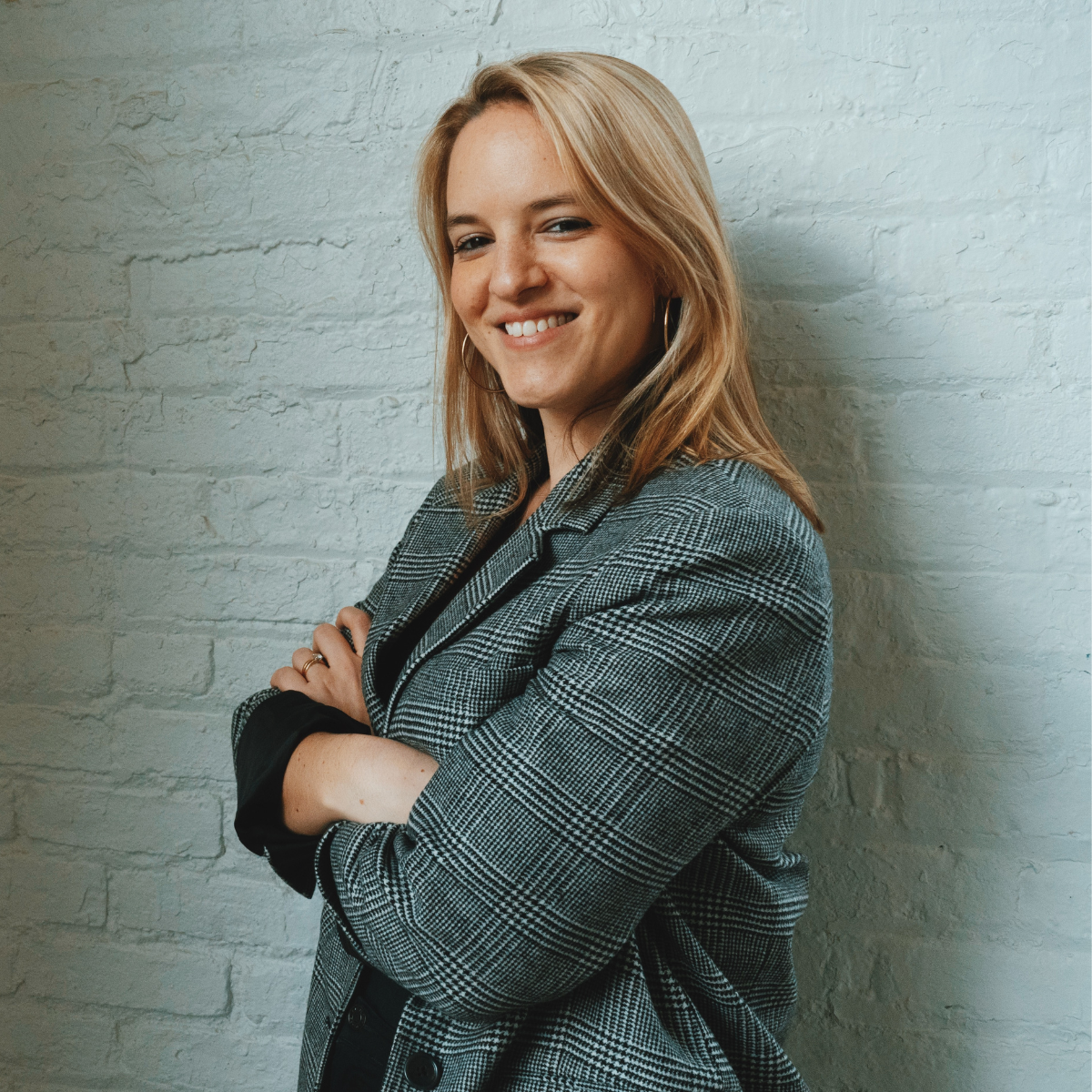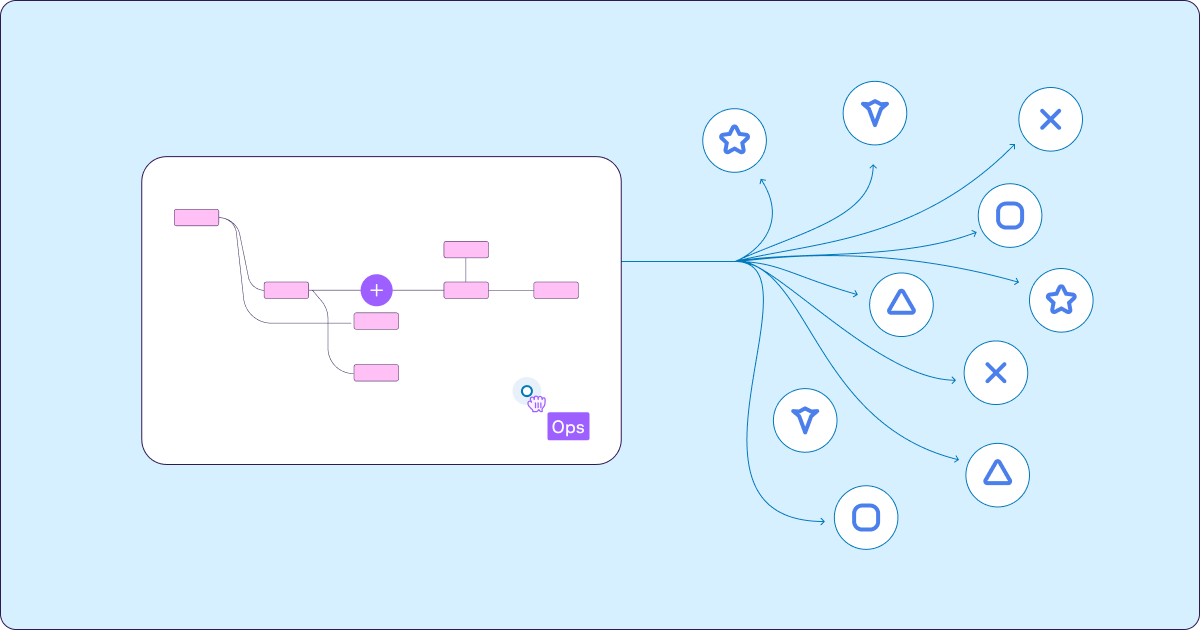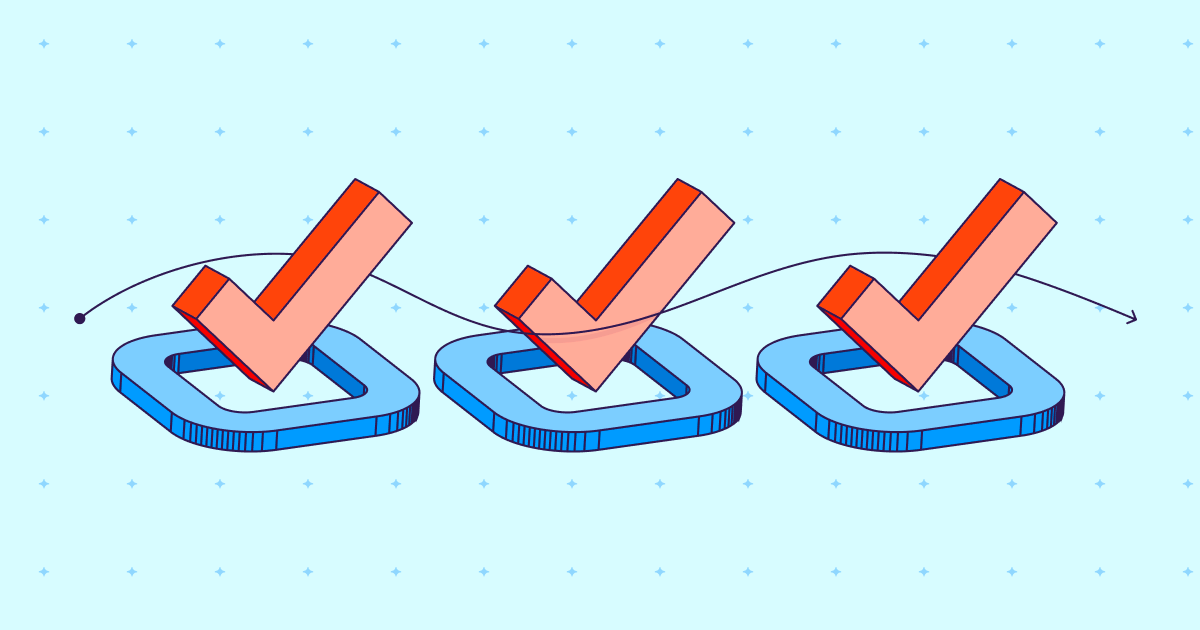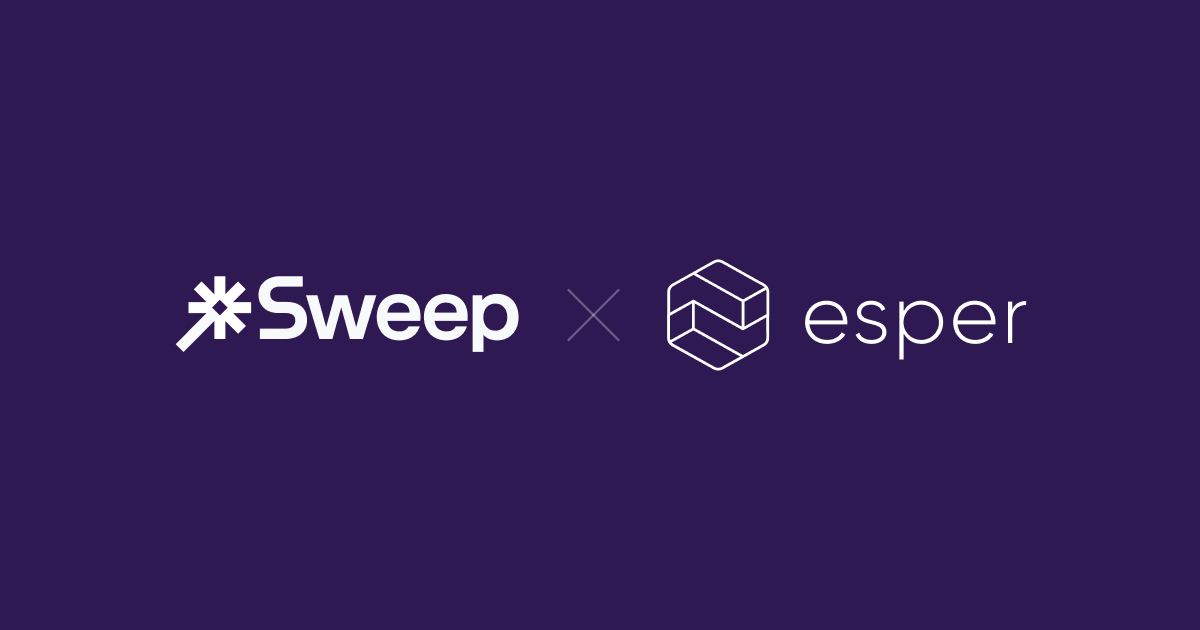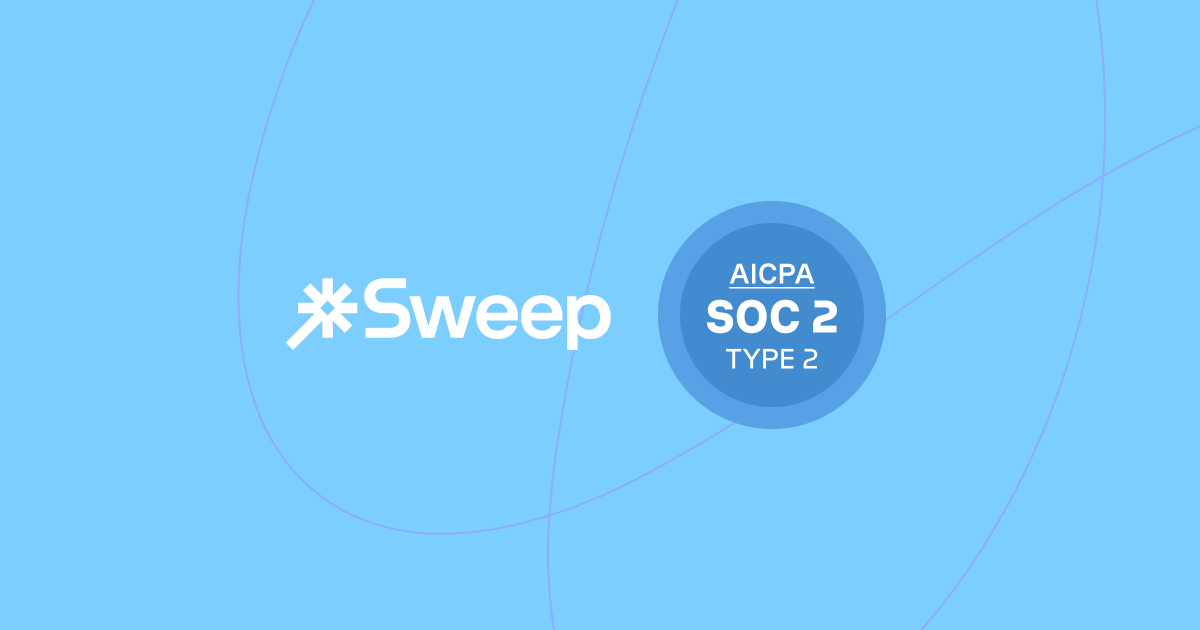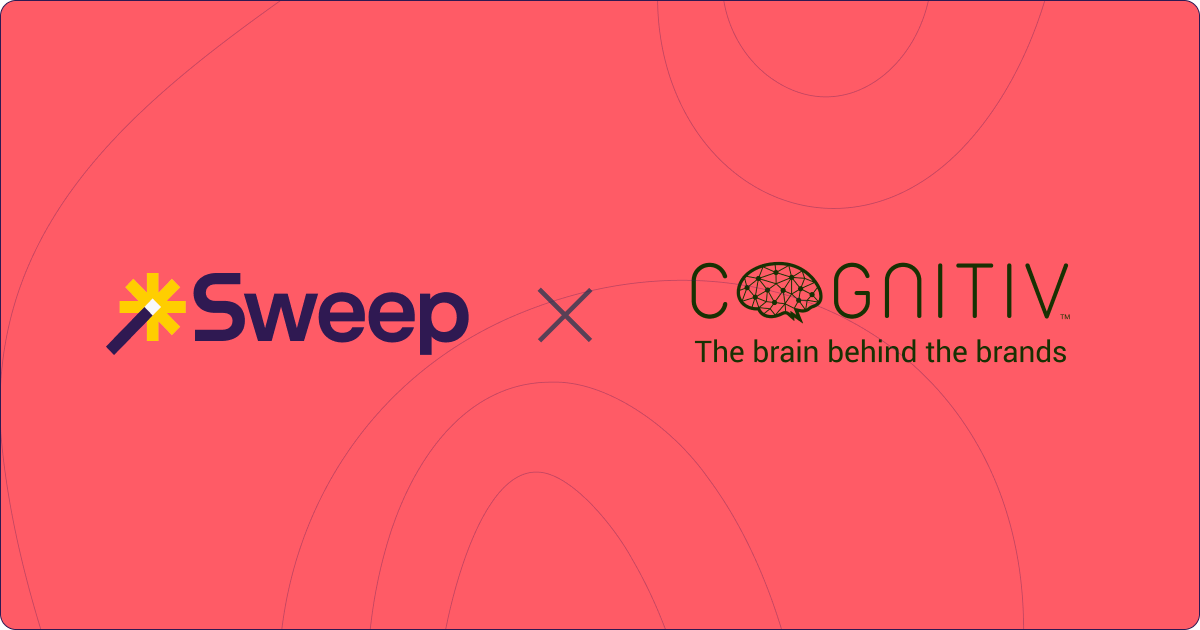
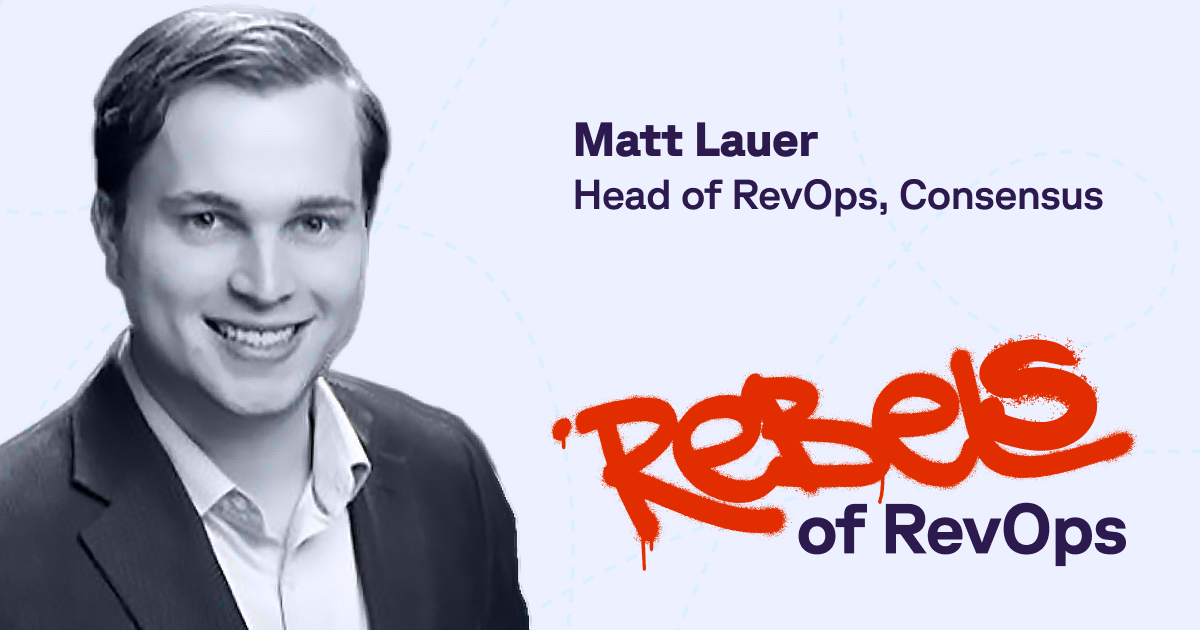
Here at Sweep, we're excited to be launching a new interview series highlighting people who said "hell no" to the status quo and established themselves as innovators in the Revenue Operations space. Some of these folks started in RevOps before it was a 'thing.' Others built teams with people from entirely different backgrounds or got creative with limited resources or adopted technology before it became popular. And some simply forged their own path forward.
In this post, we’re excited to feature Matt Lauer, Head of Revenue Operations at Consensus, who shares how he found his passion for operations by way of political nonprofit work and why he thinks compressing feedback loops should always be prioritized.
Sweep: What initially brought you to the world of Revenue Operations?
Matt Lauer: After getting my start in political nonprofits, I found a love for operations. I migrated out of politics and found marketing operations as my first home. Since then, I've built data, process, and systems out across companies and finally made the leap to Revenue Operations in an official capacity.
Sweep: What is one "out of the box" idea you had while working in RevOps? Was it successful?
Matt: We had a major issue with close rates and understanding the health of our pipeline. So in late 2023 I set out to solve this problem. The innovation I had was building a deal score which was (1) simple to understand, (2) simple to automate, and (3) simple to act on while depending on buyer intent activities instead of seller actions. The result was "deal momentum". A real-time and weekly recorded score of deal health which focused on key, back-dated metrics which connect to success. Since that was introduced, our close rates more than doubled, RevOps successfully predicted quarterly ARR to within 5% 3 quarters in a row 9+ weeks out, and each quarter was better than the last. Deal momentum is now a full, integral part of our sales motion and was presented to the board just 6 months after creation.
Sweep: How would you describe your Revenue Operations philosophy?
Matt: I believe in compressing feedback loops as much as practically possible. Specifically, this means taking the OODA loop (concept introduced by Col John Boyd) and shortening each stage Observe, Orient, Decide, Act. By doing this, you can iterate faster to stay ahead of your competition and just get more done in the same amount of time.
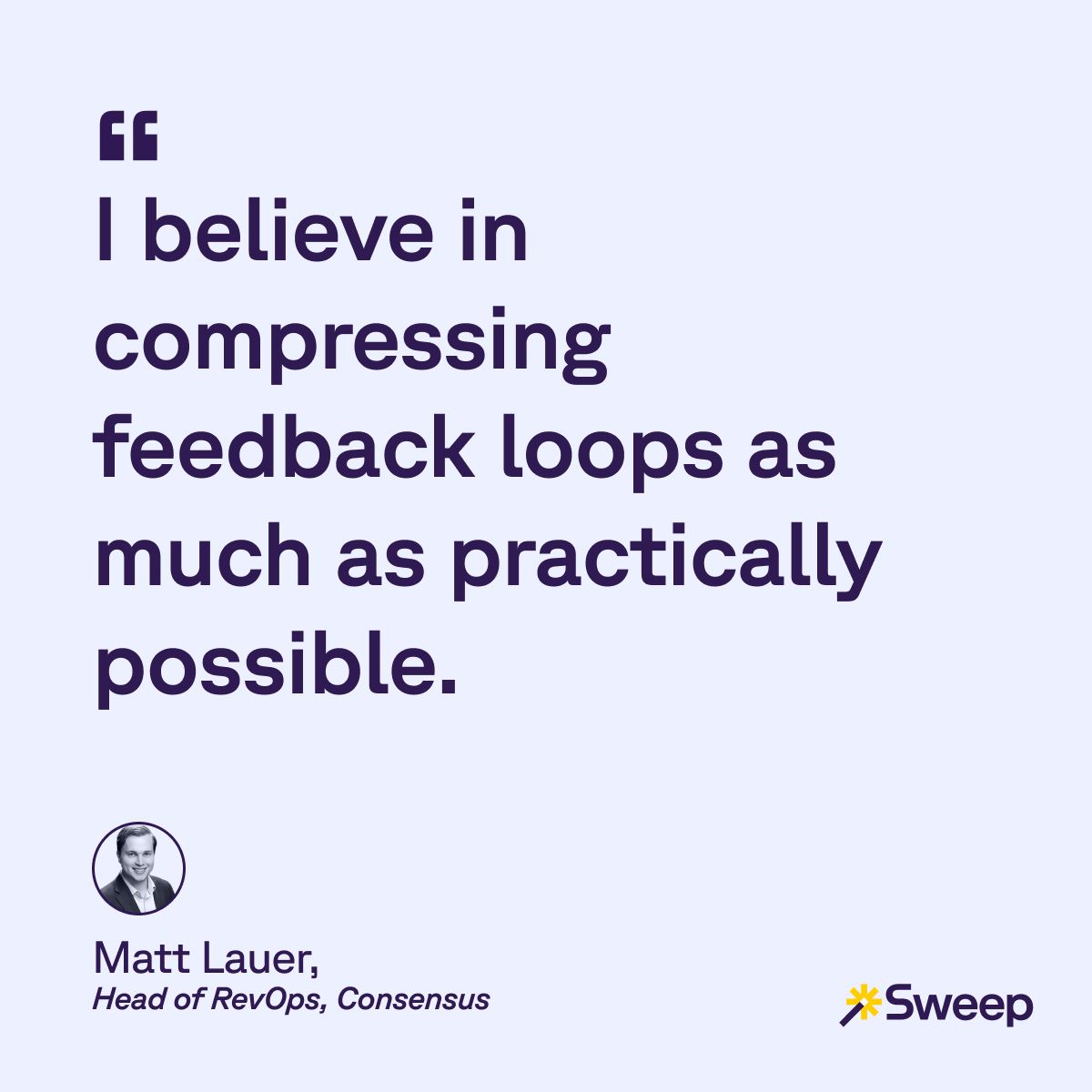
Sweep: What was one tool or piece of technology you introduced to your team? How did you get buy-in? And what were the results?
Matt: Gong. In conjunction with deal momentum, the ability to easily search through your calls for coaching and auditing purposes is a game changer. This means that our sales leaders can look at a single dashboard to coach and assess performance for deals across the funnel and then dig in to see why ones are over or under performing.
Sweep: What do you think will be the next BIG thing in RevOps?
Matt: An easier way to measure and refine pipeline health. The incredible change in our Sales operation the moment we quantified, with data that backdated accurately, the health of a deal early and automatically, changed our motion in just 6 months. Anything which can make it easier for RevOps to do that will mint money.
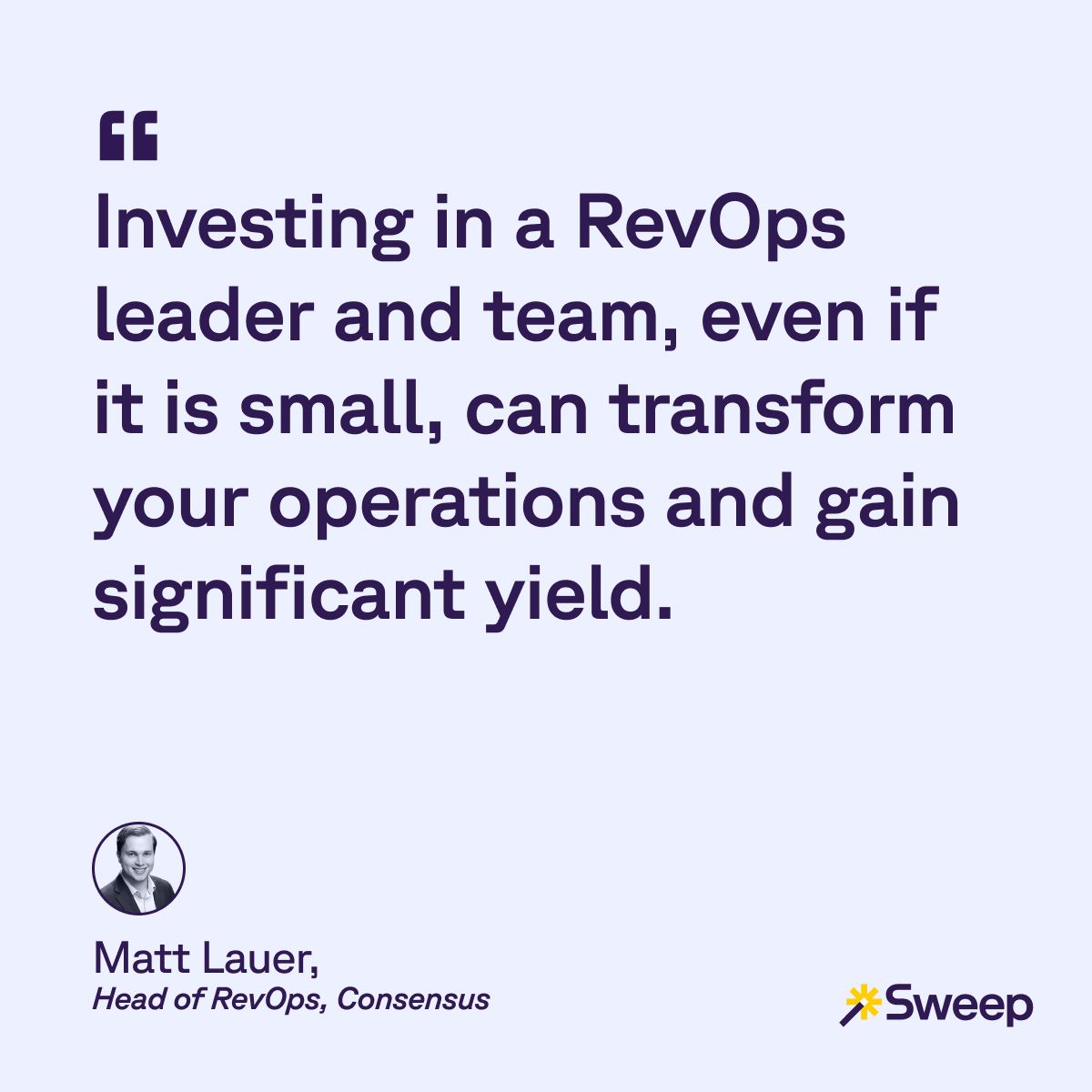
Sweep: Where do you think RevOps will be in 5 years? And where do you think you’ll be in 5 years?
Matt: RevOps is coming of age because money is no longer free. Rising interest rates mean that companies, especially tech companies, need to squeeze their revenue funnel as efficiently and completely as humanly possible. Investing in a RevOps leader and team, even if it is small, can transform your operations and gain significant yield. For me personally, I'll continue riding the RevOps (and operations) wave, wherever that takes me.
Follow us on LinkedIn to see more stories from members of our RevOps community.
